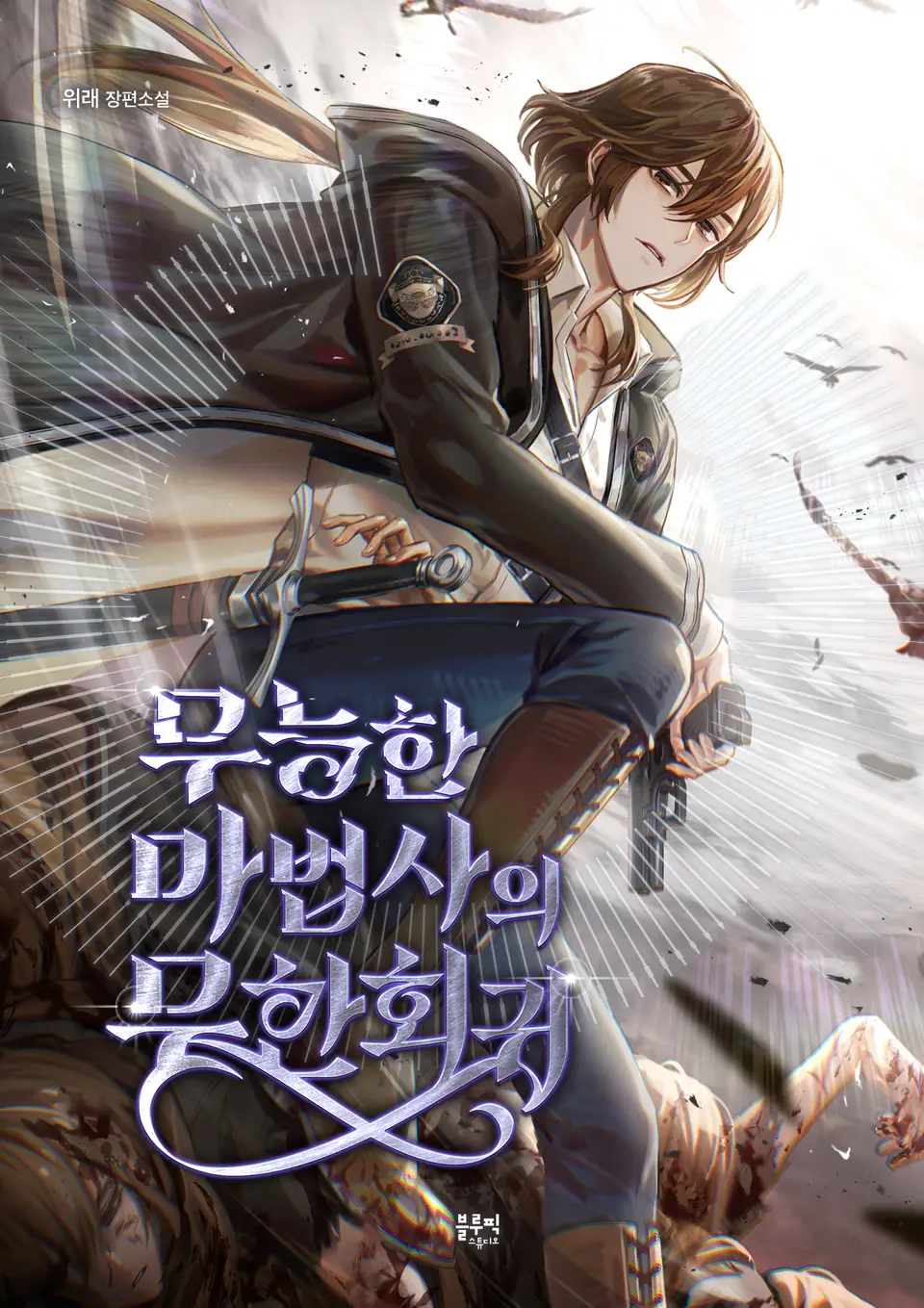The cheers and reverence of the people greeted Murad as he returned to Edirne after subjugating Constantinople.
The news had already spread: the Emperor of the Empire had come out of the gates himself and kissed the feet of the Sultan. With this, the Sultan’s authority was proven beyond doubt.
Though the Empire was in decline, it had endured for a thousand years. That such a monarch had become his vassal was more than enough to spark celebration.
But the Sultan, Murad, saw it differently.
“At last, both emperors of Constantinople and Morea have pledged their loyalty to me. Only now can I be certain.”
Did the Ottomans truly gather an army of 33,000 men merely to bring two emperors to their knees? Murad was not blinded by pride. He remembered what had to be done: shatter the unity of the Christians to achieve Ottoman supremacy. The first target of the Sultan’s army would be none other than Serbia.
“I will bring order to this land by striking Serbia, which refused to answer my summons. And when they again bow before the name of the Ottomans, I believe peace will finally come to this land.”
The reason for attacking Serbia instead of isolated Morea was simple. Serbia lay directly in the path of the Crusaders—it was the gateway they must pass through to reach the Ottomans, and the Ottomans’ gateway into Europe. But that wasn’t the only reason. Murad had begun watching one of his vassals closely.
His longtime adversary, who endured with bowed head despite every insult and humiliation.
Watching him, Murad renewed his resolve. This war would be the first step toward Ottoman dominance and the chance to sever the limbs of his greatest enemy.
The Emperor Dragases, who had managed to restrain the Ottomans with meager strength, could not be allowed to roam freely. So Murad forced a cruel, unavoidable choice upon him.
“I name Skanderbeg and Dragasēs as the vanguard of this campaign.”
“I will follow the Sultan’s command.”
“……”
The two named men reacted very differently. Skanderbeg, who had remained silent until now, responded with respectful composure. But Dragases raised his head instead.
Naturally, his gaze met the Sultan’s. In that moment, both men saw clearly the emotions in the other’s eyes: the Sultan was wary, and the Emperor was enduring. Yet there was no doubt who was cornered.
Who could dare refuse the Sultan to his face?
The last traces of a glorious past had turned to dust. The imperial crown of a fallen thousand-year empire could not defeat an army of over 30,000. In the end, the Emperor bowed his head to the Sultan. To preserve what little life remained in his empire, he had to remain a servant.
And so, he answered with hesitation and struggle.
“…I will obey the Sultan’s command.”
“Such loyal devotion, Dragases.”
The emperor ignored Murad’s mocking tone. Murad hadn’t spoken expecting a reaction. But even still, the gaze he cast upon the emperor remained cautious.
This was the man who had dragged a nearly finished war this far. No room for possibility could be allowed. That obsession filled the Sultan’s mind. That was why he hadn’t named Dragases alone.
“That one so loyal must not be easily lost. Skanderbeg, you are to assist Dragases. The two of you will lead the vanguard, securing the main army’s safety from any surprise attacks. The responsibility is great, and failure will be punished harshly.”
“As you command, my Sultan.”
Once again, Skanderbeg accepted with calm. But the emperor’s eyes trembled without pause.
He had suspected a shift in Ottoman movements, yet could not suppress his unease. Why else would the Sultan insist on placing him at the vanguard? It was common knowledge that Dragases had marital ties with Serbia. By making such a man lead the invasion of Serbia, Murad hoped to sow discord.
But that’s not all.
It might be called negativity—but the emperor could not ignore what that word implied. As a “vanguard,” he would be cut off from the main force and excluded from critical information. And he wouldn’t be alone.
Skanderbeg.
To most, the name might be unfamiliar. But not to the emperor. Skanderbeg, once loyal to the Ottomans, would one day become the legendary Albanian rebel who resisted them. A commander who led the only successful resistance against the powerful Ottomans. Decades from now, he might be a trusted ally—but tragically, at this point in time, he was still their faithful servant.
This is a crisis.
An isolated situation. The emperor forced to lead an invasion of Serbia. Skanderbeg placed beside him to watch his every move. And Morea, restricted by the emperor’s conscription into the Ottoman army.
Nearly every card Dragases could play had been taken from him. It was exactly the outcome the Sultan had wanted.
He had to find a way through.
As he repeated this to himself endlessly, the emperor once more felt the overwhelming presence of a prepared victor.
The victor chosen by history, who had already proven himself to the world.
Though he had brought that victor down using knowledge no one else possessed, the limitations were clear. Now, the defeated—who should have long since fallen—would begin their leap to rise again.
Many would give up here, thinking the outcome already decided. But the Emperor had made a vow at his coronation—one he would not abandon.
That is why he bowed his head.
That is why he now rises to challenge.
Avoiding the gazes around him, the emperor shot a brief glare at Skanderbeg, then reaffirmed the cards he still held. Albania. That was where the final hope to overturn the current situation lay. And surely, those who feared the Ottoman Empire’s rapid expansion would not remain idle.
In one way or another, they would intervene. And from that would come a sliver of opportunity—a narrow breach through which the empire might survive.
The House of Kastrioti… everything depends on forging a connection with them.
Skanderbeg’s family—and the very heart of the resistance against the Ottomans. They were the only key that could alter Skanderbeg’s mind and actions. Through Bishop Nikephoros, who had already set out for Albania, the emperor had to turn Albania into an ally. Only then could they rally the strength of Christendom via the Adriatic coast.
Replaying this thought countless times in his head, the emperor began to regain his composure.
There was no need to waver now.
This was, from the beginning, a turn of fate he had anticipated and prepared for.
It was the struggle between the Ottoman Empire, at the height of its power, and an empire on the verge of collapse. No one was mistaken into thinking this wasn’t a hopeless attempt. Yet history had moved. And it had not yet declared that all possibilities were lost.
That one chance to overturn fate hadn’t arrived—but it was drawing near.
“Prepare for departure. Dragases. Skanderbeg.”
“As the Sultan commands.”
Then, all that remained was to endure until the opportunity came. To gather strength, and wait for that inevitable opening.
The emperor pledged his future by obeying the Sultan’s orders alongside Skanderbeg.
There was no longer any imperial dignity left in that act—no authority of a ruler who governed a thousand-year-old realm. Only the resolve of a man who looked beyond the millennium remained.
—But he was not the only one who understood this.
As Dragases and Skanderbeg turned to leave for the campaign, Sultan Murad watched their retreating figures intently, then quietly spoke the name of a Muslim who followed the prophecy.
“Halil.”
“At your command, my Sultan.”
“I believe I’ve cornered him enough. I’ve applied all the pressure I possibly could.”
“Indeed, as you say. The Ottomans have moved with complete precision in this matter.”
It was Halil’s calm tone that revealed his pride all the more clearly. It was not arrogance. It was confidence born of having done all that could be done.
Who could sneer at the current Ottoman Empire, brought into being by the vision of Çandarlı Halil Pasha, the experience of its military commanders, and the resolve of Sultan Murad himself?
Yet still, Murad’s eyes glinted with a blade-like sharpness, aimed straight at the emperor’s throat.
“Yes… With your help, Halil, I have layered scheme upon scheme until Dragases has no path left to escape.”
“My Sultan, this will be your army’s first true trial by fire. There is nothing strange in feeling a bit of tension.”
“And yet Dragases still endures.”
Understanding his adversary’s thoughts was something Murad shared as well.
Sultan and emperor—two rulers of nations that could never coexist—watched and prepared, each fully aware of the other’s burdens and missions.
That is why Heaven had not yet granted the Ottomans complete dominion. Because the Sultan had not yet overcome the final trial placed before him.
Even so, the empire’s situation remained one of utter despair—so bleak that hope itself seemed meaningless.
Hope.
Murmuring the word with a tone so sunken it was impossible to tell whether it was a sigh or a sneer, Murad spoke:
“What is it you see that makes you hope, Dragases? Is it because you’ve already seen through everything we’ve devised? Or is it simply the delusion of a man who refuses to face reality?”
“He must be chasing after a empty hope, my Sultan.”
“You are right. A empty hope.”
In the end, all it does is prolong the people’s suffering for a doomed future.
“And a empty name.”
A name faded centuries ago.
Once a symbol of glory, it now only etches in the wretchedness of the present.
But it matters not—whether it is the former or the latter.
The Ottomans, who swore an oath in accordance with the prophecy prepared for all Muslims, would continue to move for that prophecy’s fulfilment.
The empire would fall.
Those who clung to the past and sought once more to become the masters of fate would submit to the will of Allah.
“As the one who rules all beyond the gates, I will forgive no further insolence. I will utterly crush them. Until they can no longer resist, until they beg for mercy, I will trample them again and again.”
And the soil thus beaten down will become the foundation for a mosque from which hymns to Allah shall rise.
The oath of the Ottomans will be fulfilled.
By shattering the oath of those who swore to save the empire.




